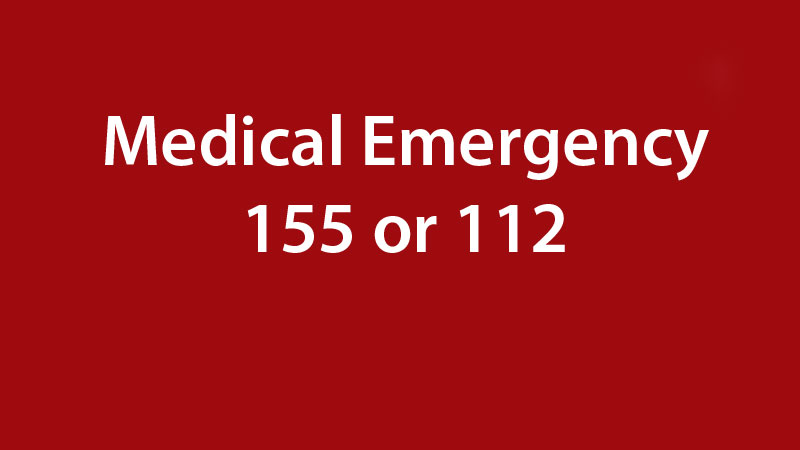Prague Medical Emergency 155 or 112
On the Prague Chemists post you would have found the updated list of 24 hour chemist services. But sometimes it’s just too serious and you may have to call for an Ambulance. Here’s how it works and what to expect.

Prague Medical Emergency – Using 155
The original emergency numbers in Czech were 150 (general reporting of accident), 155 (Ambulance), 156 (City Police), 158 (National Police). Don’t ask me why! Originally this system was designed to be linked to the fixed telephone line system so when you used a landline (kids, ask your parents about that!) the emergency services immediately had your address. This system still works today from a landline and you can use the same numbers from a mobile. If using a mobile the emergency services will have a number and a registered person/address but you would then have to give the address that you want the people to attend.
You use the 155 number if 1) you are confident speaking Czech and 2) you are sure that ONLY the medical service is required.
Prague Medical Emergency – Using 112
112 as an emergency number had been around since 1991 when it was adopted on a European level to be the common emergency number on mobile systems. It has advantages and limitations. The main advantage is language. The default foreign language is English but the first few seconds of the call establishes your language and transfers you to a person you can speak to.
The disadvantage is time. Regardless of the type of emergency, the 112 line is basically the first-level “international call centre” of the system and its job is to identify you, get a contact number, an address, a language and emergency type. You are now transferred to the 150 service with this info.
This is the second-level, their screen will already have your details with the initial “service” requirement but this is still basically another call centre and their job is to confirm your details, especially the address, the help required (additional services may be needed i.e. fire/rescue or police) and route you to the correct service.
This third level should now be speaking your language, know that a medical response is required, know where you are, know where the nearest resources are and now there will be a few specific questions to answer. Don’t worry, by the time you’ve established, conscious/unconscious, breathing, bleeding, head injury (which will take less than a minute), the dispatch is already in progress. Any other info taken like age, sex, circumstances, medical history, allergies will all feed into the system. This level provides any over-the-phone guidance. If this is a vehicle related incident then they will tell you what to use from the vehicle first aid kit.
You use the 112 system if you do not speak Czech.
The Response
Based on the information given, a Rapid Response is dispatched and this will be two separate vehicles. The smaller and faster car contains a paramedic and a doctor. In most cases this will be the first response on site and their job is to assess, stabilise and perform any emergency procedures with portable equipment. Expect that they will be asking the same questions as earlier plus a few others. The larger but slower ambulance with paramedics takes over the stabilised patient, continues the treatment according to the doctor and transports to hospital. Depending on the seriousness of the case, a parent may be requested to ride in the ambulance, otherwise you need to check to which hospital they are heading.
What’s it Going to Cost?
If you are resident in the country and are integrated into the social care system then it’s free and you’ll give the necessary details. If you are an EU citizen visiting Czech then again it’s free although you do need to provide EHIC/GHIC (European or Global Health Insurance Card) and/or card insurance numbers based on the EU country of issue.
If you are non-EU then “life-saving” treatment is generally free but ongoing treatment and/or aftercare will need to be arranged. In that case or if you have EU Private Health Insurance cover then check the How Healthcare works in Prague post because you’ll need to register with a local company.
